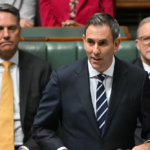Australia comes bottom of the class on climate action

Last week, Germanwatch and Climate Action Network (Europe) announced the results of their annual survey of countries’ climate change action throughout the world.
Australia did not fare well in the Climate Change Performance Index (CCPI) coming in at 54th out of 57 responding countries. As many would have predicted we received harsh criticism internationally and again at the climate change meeting in Bonn
There is no doubt that it is time for Australia to take definitive action in line with the Paris Agreement, which calls for ambitious efforts from all parties to hold the increase in the global average temperature to well below 2°C above pre-industrial levels and pursuing efforts to limit the temperature increase to 1.5°C. Many commentators have already conceded that we have no chance of staying within the 1.5˚C limit, and will have extreme difficulty meeting the 2˚C limit unless we make stronger commitments.
Our health and the health of future generations and the whole biosphere are vitally dependent on keeping within these limits.
According to the Bureau of Meteorology, 2017 is likely to be the third warmest year since reliable records began. On land we are exposed to an increased risk of extreme fire weather while the surrounding waters have warmed to a depth of at least two kilometers, jeopardising the survival of coral reefs and marine life in general. Rising sea levels, due to both thermal expansion and ice-shelf melt, are now not only a matter of forecasts but a reality.
A recent publication signed by over 15,000 scientists calls for concerted actions in multiple areas if the world is to remain habitable. Especially troubling is the current trajectory of potentially catastrophic climate change due to rising greenhouse gases from burning fossil fuels, deforestation and agricultural production of ruminants which release methane. The report particularly emphasises the likelihood of species extinctions in large numbers and a vast reduction in biodiversity by the end of this century if action is not taken on many fronts.
The CCPI is based on three objective measures: carbon emissions, uptake of renewable energy resources and energy use. A fourth measure is more subjective, that of the country’s emission reduction policies. Emissions carry the most weighting at 40%, with weighting of the other categories being divided equally. Energy use is a compilation of recent-past and current use per capita and targets that are in line with a well-below 2˚C warming pathway.
As roughly 80% of the CCPI is an objective measure, the Index can be regarded as an accurate indicator of Australia’s climate performance which can only be seen as shameful. Notable other poor performers are Saudi Arabia, South Korea, Iran, USA, Canada and Japan.
The report by Germanwatch is a timely reminder to nations to improve their act. Australia has been operating with low ambitions and is yet to incorporate significant emission reduction as a major element in energy policy. Even current policy debate with its hastily derived outcomes fails to appreciate the urgency of action.
Can Australia improve its ranking in the CCPI? At this stage, it would appear that a higher ranking can only be achieved by Australia’s states continuing their more ambitious policies in spite of federal condemnation. How much of this criticism is political posturing and how much is generated by ignorance and vested interests is difficult to say, but it is clear that the federal government, for Australia’s and the world’s sakes, needs to lift its game.
Dr John Iser is the Victorian Chair of Doctors for the Environment Australia. He has been a general physician and gastroenterologist.













Alan Stevenson
December 18, 2017 at 10:51 am
I find it difficult to understand why we should be so far down the register. We have plenty of sunlight, ample spare land and a fairly constant wind source across the southern states. Individuals and small towns are now building their own solar power collectors, batteries are getting cheaper and many are putting solar on their roofs.
We have been told that there is a hot spot beneath the brown coal seam in Victoria which could be tapped for steam power in the same way that New Zealand has done. It appears that the sticking point is our pollies who are fixated on coal and oil, perhaps because of the amount these enterprises spend on lobbying. I noticed in the last two by-elections that the Greens were rather sneered at.
This is also depressing since that means that the pollies are not at all convinced about the science of climate change no matter what they say. Maybe this is because of the short terms they have to contemplate. True, they are elected to make laws, but this does not mean that they have to be lawyers whose job it is to argue the point their clients demand.
People interviewed on the ABC seemed to think that voting Green was a way to copping out because they did not like the other parties. Surely, after all this time we should be thinking of our grandchildren and the kind of life they can expect? Most climate scientists are now contemplating a 4 degree rise which was unthinkable even ten years ago. This means a massive migration pattern of not only humans but animals and sea creatures as well as storms, fires, etc. Perhaps we should try and force our pollies to undertake a basic course in scientific thinking instead of blindly agreeing on following the party line.